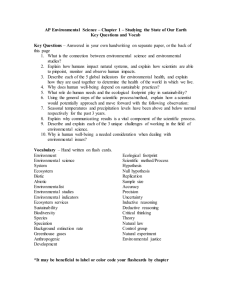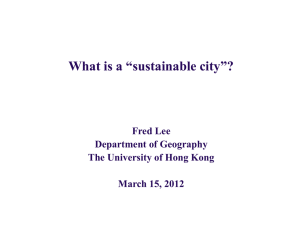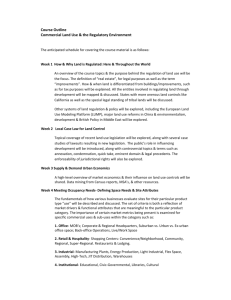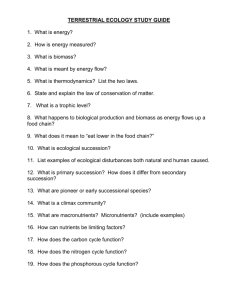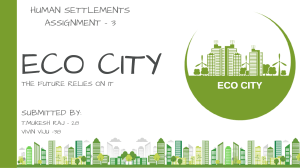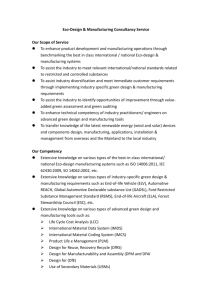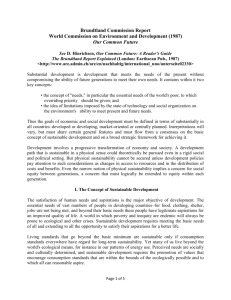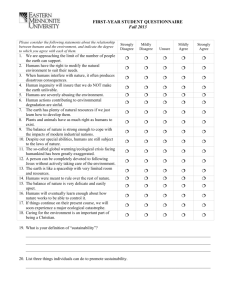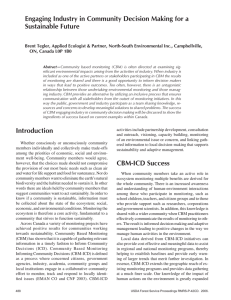UNU Global Seminar 2nd Tohoku Session
advertisement
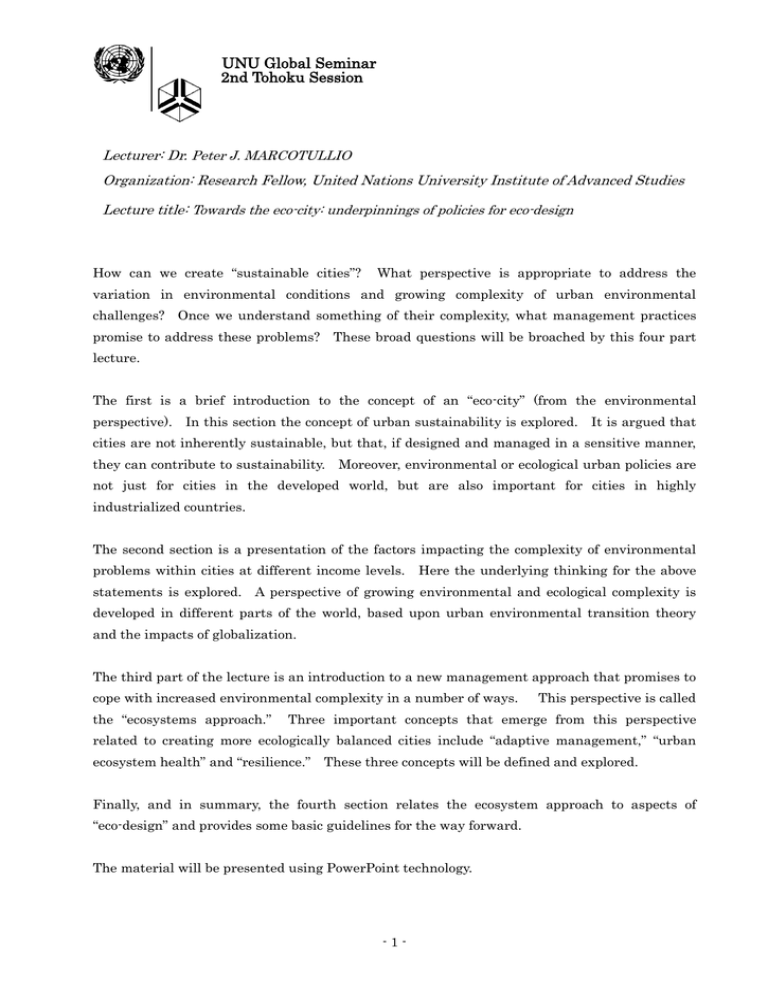
UNU Global Seminar 2nd Tohoku Session Lecturer: Dr. Peter J. MARCOTULLIO Organization: Research Fellow, United Nations University Institute of Advanced Studies Lecture title: Towards the eco-city: underpinnings of policies for eco-design How can we create “sustainable cities”? What perspective is appropriate to address the variation in environmental conditions and growing complexity of urban environmental challenges? Once we understand something of their complexity, what management practices promise to address these problems? These broad questions will be broached by this four part lecture. The first is a brief introduction to the concept of an “eco-city” (from the environmental perspective). In this section the concept of urban sustainability is explored. It is argued that cities are not inherently sustainable, but that, if designed and managed in a sensitive manner, they can contribute to sustainability. Moreover, environmental or ecological urban policies are not just for cities in the developed world, but are also important for cities in highly industrialized countries. The second section is a presentation of the factors impacting the complexity of environmental problems within cities at different income levels. Here the underlying thinking for the above statements is explored. A perspective of growing environmental and ecological complexity is developed in different parts of the world, based upon urban environmental transition theory and the impacts of globalization. The third part of the lecture is an introduction to a new management approach that promises to cope with increased environmental complexity in a number of ways. the “ecosystems approach.” This perspective is called Three important concepts that emerge from this perspective related to creating more ecologically balanced cities include “adaptive management,” “urban ecosystem health” and “resilience.” These three concepts will be defined and explored. Finally, and in summary, the fourth section relates the ecosystem approach to aspects of “eco-design” and provides some basic guidelines for the way forward. The material will be presented using PowerPoint technology. -1-
